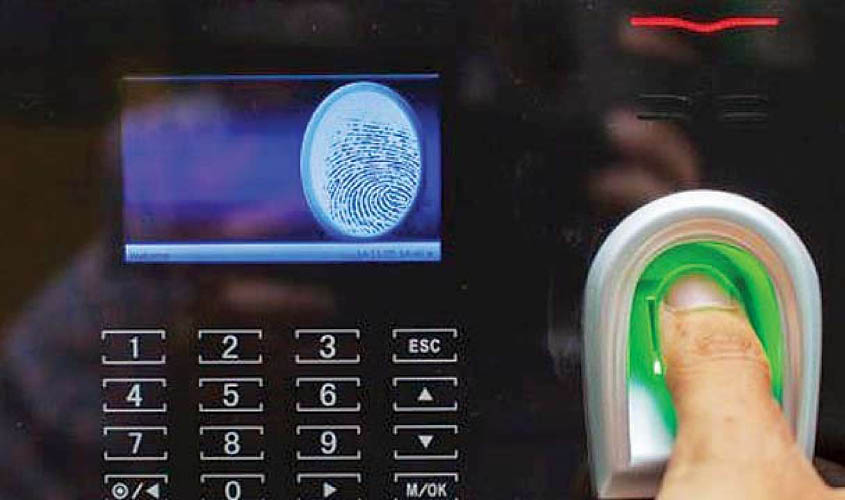New Delhi: The government of India has no data on how many Central government employees have been fined or faced departmental action for coming late to office.
This newspaper had filed a RTI query with the Department of Personnel and Training (DoPT), the government’s human resource manager, seeking details of Central government officials who have faced administrative action for coming late to office.
After coming to power in May 2014, the Narendra Modi government had executed the Aadhaar-enabled Biometric Attendance System (AEBAS) in September 2014 to ensure that Central government officers reach office on time. It had also set a deadline of 26 January 2015 to install the AEBAS at all the Central government offices across the country. As per DoPT rules, late comers to office can face administrative actions of various nature. The AEBAS was executed by Prime Minister Modi to stop ghost attendance and to make sure that employees come on time and spend at least eight hours in their office. In its reply to the RTI query, the DoPT said that “there is no centralized data maintained by the office regarding this”.
The Sunday Guardian had sought the number of Central government officials against whom action has been taken for coming late to office since January 2015, the year-wise breakup of the officials against whom action has been taken for coming late to office and the nature of action that was taken against these officials.
This newspaper had filed the RTI after people approached it stating that many Central government offices had still not installed the AEBAS as a result of which many employees still do not reach their desk by 9 am, the stipulated time.
As per the latest data on “Attendance.gov.in”, the centralised website which shows the details of the attendance, as on 20 June, 740 government organisations, headquartered in Delhi, were using AEBAS with 83 still not joining the platform.
As per the website, the Central Bureau of Investigation (CBI), too, has still not installed the system at its headquarters in Delhi.
The average time that the officials of these 740 offices were spending in office was 8 hours and 12 minutes.
The Sunday Guardian has also accessed an office order issued by the Ministry of Corporate Affairs (MCA) in December 2015 after it was observed that despite several reminders, many officials were not coming to office by 9 am and many had still not registered themselves on AEBAS. The office order had warned the employees of strict administrative action for coming late to office.
When The Sunday Guardian checked the records of the MCA on 20 June 2019, more than four years of the said office order, this paper found that only 20% of the officers were reporting for duty by 9 am. As per the cumulative data which has been collated since the system was executed, the average “in-time” in the Ministry of Corporate Affairs was 9.24 am.
Some of the worst performers when it comes to coming late, as per the Attendance.gov.in site, includes the CBDT office in Jhandewalan with the average time of marking their attendance being 10.19 am, CBDT-Income Tax Offices at Hans Bhawan, at 10.38 am,CBDT-Commissioner of Income Tax, Noida—11.13 am, CBEC-Large Taxpayer Unit Audit, Delhi–11.10 am, CBEC-Directorate of Revenue Intelligence—10.24 am, Central Tax and GST Delhi office—11.48 am, Indian Agricultural Research Institute—10.37 am, Income tax Offices in Rohit House, Tolstoy Marg–11.07 am, National Horticulture Board—10.48 am, Office of the Director General of Audit, Defence Services—11.56 am. There are over 30 lakh Central government officials across the country.
As per rules, employees lose half-a-day

